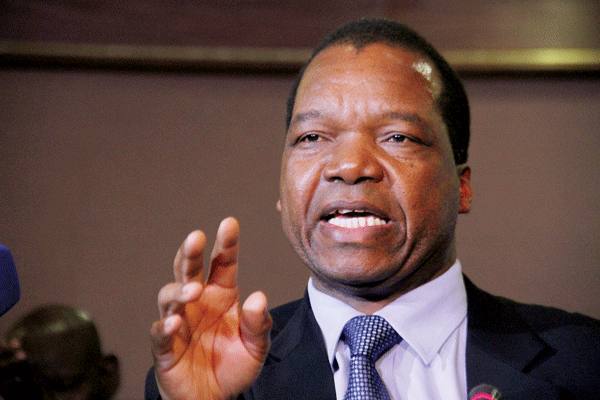
BY TATIRA ZWINOIRA
THE Institute of Chartered Accountants of Zimbabwe (ICAZ) last week cast doubts over the validity of financial statements, citing hyperinflation and exchange rate volatilities.
It has been a recurring problem since 2019, when Zimbabwe relapsed back into an exchange rate crisis and high inflation.
But while inflation has slowed from a high of 839% in July 2020 to 66,1% currently, accountants say corporate planning has been complicated.
The Zimbabwe dollar was trading at US$1:$124 last week, against parallel market rates of up to US$1:$230.
Authorities want firms to use the official exchange in preparing accounts.
However, firms have argued that most of the foreign currency is obtained on the expensive black market, which also determines the cost of doing business.
According to international reporting standards, when an economy averages an inflation rate of 100% over a three-year period, it is classified as hyperinflationary.
- Chamisa under fire over US$120K donation
- Mavhunga puts DeMbare into Chibuku quarterfinals
- Pension funds bet on Cabora Bassa oilfields
- Councils defy govt fire tender directive
Keep Reading
In July 2019, the Public Accountants and Auditors Board announced that Zimbabwe had slipped into hyperinflation.
This was guided by the international financial reporting standards, which guide how companies report under hyperinflation.
Speaking at the recently held 2022 Monetary Policy Statement review webinar, hosted by the Zimbabwe Independent, ICAZ representative Esther Antonio said financial statements could now be unreliable.
“We have been having a situation where financial information has been rendered unreadable, difficult to compare, difficult to make decisions on and we look forward to that gap closing so that users of financial information are able to make meaningful decisions,” Antonio said.
Corporate data is also used by governments to measure economic growth or contraction.
With experts doubting the validity of data coming out of local firms, it could mean the entire state of Zimbabwe’s economy is distorted, making it difficult to make correct and accurate decisions.
Many companies have indicated that it is now reliable to use volumes growth or contraction to measure companies’ health.
“I think the profession welcomes a significant reduction in hyperinflation. It is worth noting that there is a very different definition of what constitutes hyperinflation between economists and accountants,” Antonio said.
“So, from an accounting standpoint, as long as inflation averages 100% over a three-year period an economy is considered to be hyperinflationary,” she added.
“So, for those that will be looking at the financial statements, it means that the financial statements for 2021 will continue to be prepared using the hyperinflationary standard.”
She said the parallel market was driving inflation.
“The next issue I will touch on is the issue of exchange rates and I think this has really been a challenge for the profession as a whole from both the preparer side and the auditing side.
“The question of what exchange rate is an appropriate exchange rate from a financial reporting standards framework,” Antonio said.
“I think the financial reporting standards are written in the base case scenario and sometimes don’t anticipate the situation we find ourselves in. I think the standards setters are recognising that the base case scenario is not always what prevails and that there is some work being done around how to look at exchange rates when there are challenges.”
In response, Mangudya said using their definition of hyperinflation the country was already out of volatilities.
However, he admitted that the viewpoints of economists and accountants needed to be aligned.
“We are seized with inflation.
“Yes, economists and accountants use different methodologies concerning hyperinflation.
“But, obviously, if we go by our economic definition, we are out of hyperinflation but of course you guys always call the shots as accountants,” he said.
“Our wish is to ensure that by (the end of) 2022, we move out of this hyperinflation definition both from an accounting perspective and from an economic perspective. That is our prayer, our wish and aspiration.”
He said ICAZ members need to use the exchange rate as determined by the auction system in preparing financial reports.
“We are aware that there are always exchange rate issues when it comes to international financial reporting when looking at what is the appropriate exchange rate,” Mangudya said.
“It is not us as the central bank who come up with an exchange rate. These are entities that come to the auction with their own exchange rate.”
He said the parallel exchange rate was not driven by the RBZ, but by the private sector who wants to take advantage of market jitters to make profits.










